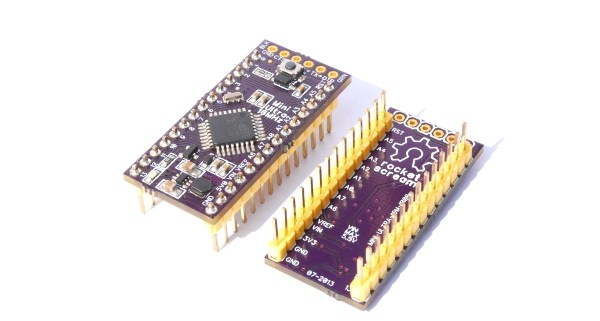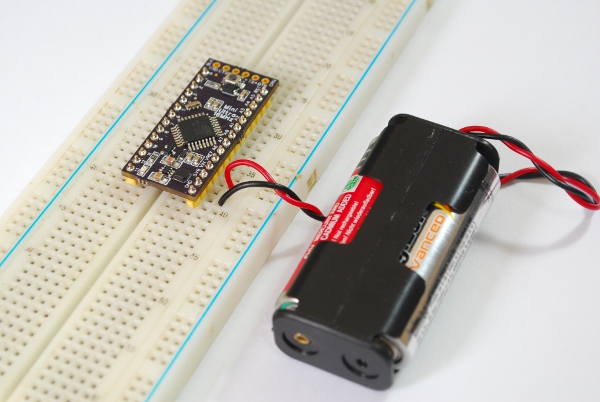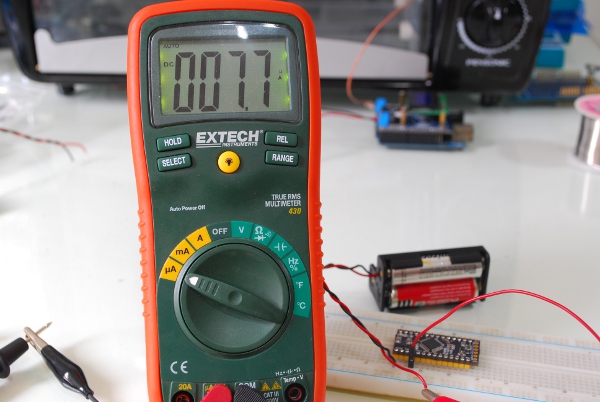Introducing Mini Ultra 16 MHz
We received several request to make a 5 V 16 MHz version of our low power Mini Ultra 8 MHz board. We know how much you guys love to operate at 5 V and running the ATMega328P at 16 MHz. We want them to be able to run from varies type of batteries and still consume very small amount of current during power down or sleep mode. We maintain the same pin out and dimension as in the Mini Ultra 8 MHz board.
The new Mini Ultra 16 MHz can be powered from various type of batteries ranging from non-rechargeable single, double or triple of 1.5 V cell batteries or even rechargeable batteries like Li-Ion and Li-Pol. We have yet to try them with other batteries like Ni-Cd and Ni-MH but it should be able to.
The on-board boost regulator accepts voltages from 0.7 V to 5.5 V and regulate it to 5 V with a maximum of 200 mA output current. The amount of quiescent current the boost regulator consumes depends on the input voltage range (the nearer it is to 5 V, the lower the quiescent current). We did a quick current consumption test using our Low Power Library with measurement taken during the power down mode of the ATMega328P microcontroller. Take note that the ATMega328P alone consumes about 0.1 μA during this mode and the rest is contributed by the on-board boost regulator. Okay, we have to admit our batteries aren’t that fresh!
| Power Source | Input Voltage | Current Consumption |
|---|---|---|
| 2×1.5V AA Batteries | 2.8 V | 12.0 μA |
| 3×1.5V AA Batteries | 4.3 V | 7.7 μA |
| Single Li-Ion Battery | 4.0 V | 8.3 μA |
At the moment, we are preparing the first production batch of Mini Ultra 16 MHz boards and hopefully we can make them available for everyone pretty soon!
Take care.











Would love an update on these, I just found your site and have been looking for low power Arduino boards – your Mini with the boost power supply is something I’m very interested in, but if the 16MHz version may be coming out soon, I may wait for them instead of getting the 8MHz ones…